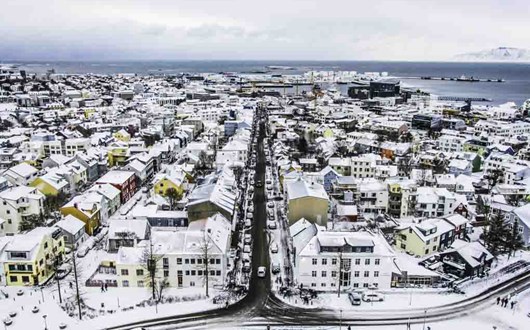
Christmas Markets in Iceland 2024
Check the opening times and what to expect from Christmas markets this year!
Wandering around Christmas markets is a great way to get into the festive mood. Here are the best markets that Iceland has to offer.
Jolabokaflod, translating to "Christmas Book Flood," is a unique and cherished tradition in Iceland, celebrated on Christmas Eve. This tradition involves giving and receiving new books, but its essence lies in the joy of reading them together.
Imagine a Christmas tradition combining a winter night's cozy warmth with the joy of a new book. In Iceland, this isn't just imagination; it's a beloved practice known as Jólabókaflóðið. This unique Christmas tradition reflects Iceland's profound love of literature and storytelling, a cultural cornerstone in this Nordic island nation.
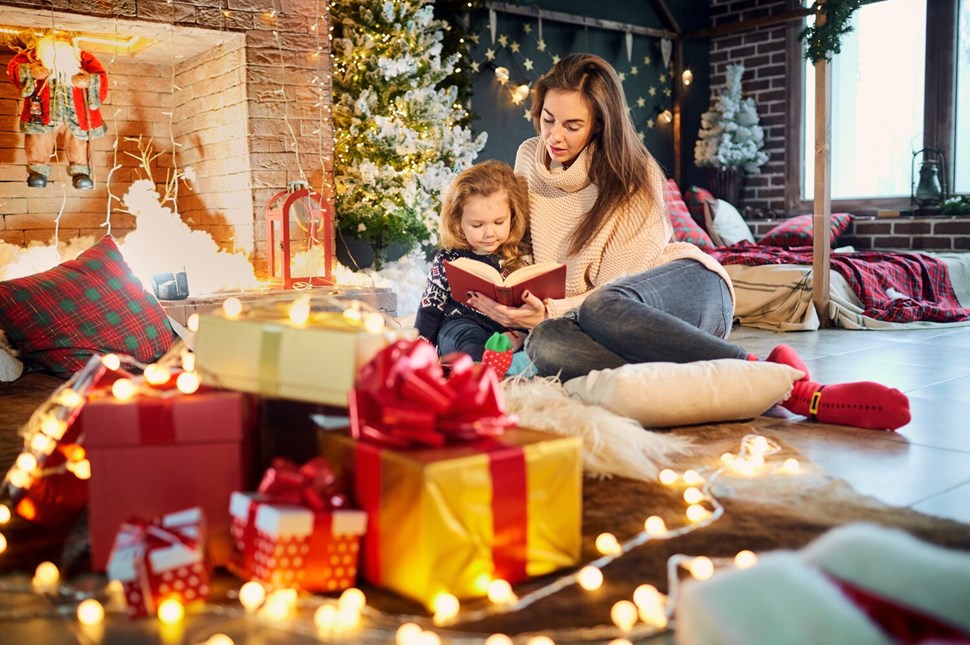
Cozy evenings, the joy of gifting, and the love of reading is the essence of Jolabokaflod, Iceland's cherished Christmas Eve book tradition.
The Icelandic Christmas Eve tradition of Jólabókaflóð, or "Christmas Book Flood," is a unique and cherished cultural practice in Iceland, deeply rooted in the nation's love for literature and storytelling. In Iceland, ‘book flood’ is celebrated on Christmas Eve and revolves around giving and receiving new books, often accompanied by delicious treats like hot cocoa, Icelandic chocolates, or even a special beer. The night is spent in the company of loved ones, reading and sharing stories, creating memories that last a lifetime.
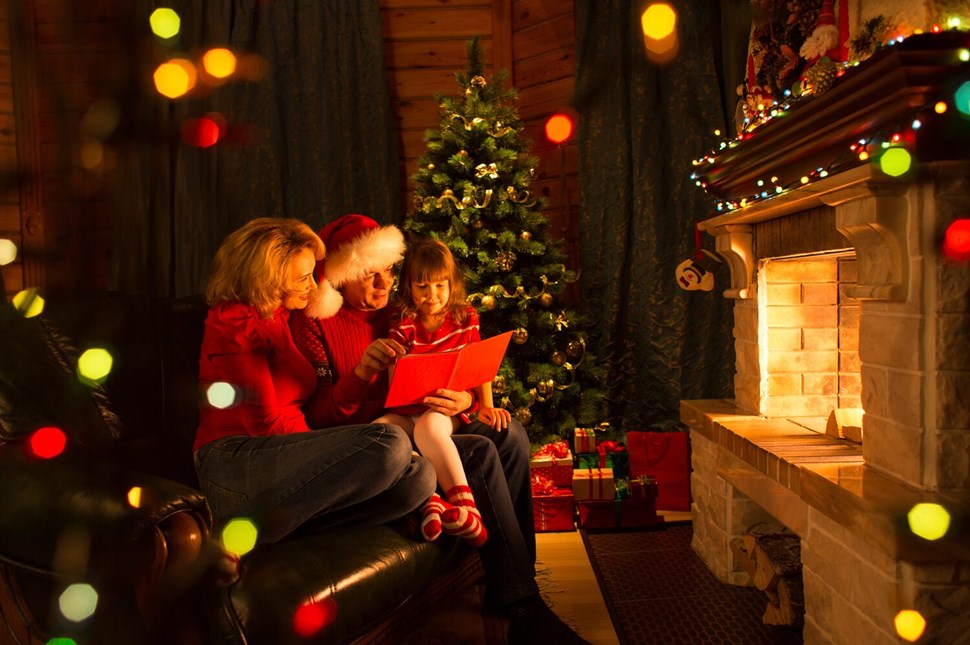
A world of stories unfolds on Christmas Eve, reflecting the warmth of an Icelandic tradition that celebrates the literary soul of the holidays.
Jólabókaflóð happens on Christmas Eve, December 24th. This is when the magic truly unfolds, as Icelanders exchange books as gifts and spend the evening reading. It's a peaceful yet very cherished part of the Iceland Christmas traditions. In Iceland, Christmas is more than just a day - it's a whole season of festivity, starting from early December and lasting until the Twelfth Night on January 6th.
But Jólabókaflóð is just one piece of the Icelandic Christmas. If you're curious to dive deeper into Christmas in Iceland, from the Yule Lads to the Christmas Cat, check out this detailed blog post about Icelandic Christmas traditions. It's a window into a world of unique and enchanting customs that make an Icelandic Christmas truly unforgettable.
Do you find yourself tongue-tied trying to say "Jólabókaflóð"? Don't worry, you're not alone! This Icelandic word, which stands for the unique tradition of the 'Christmas Book Flood,' can be a bit of a mouthful. But with a few tips, you'll say it like a pro in no time.
So, here's the breakdown: It's pronounced: "yo-la-boke-uh-flowed." Another way to remember it is "yoh-l uh- boh-k uh-flawd, joh-." Think of the initial 'J' as more of an 'I' sound. Then, take your time with each syllable, almost as if you're saying "jolly book flood," but not quite.
Now, give it a try. With some practice, you'll impress your friends and family with your perfect Jolabokaflod pronunciation!
The Icelandic tradition of Jólabókaflóð, or the 'Christmas Book Flood,' is a unique cultural phenomenon with roots deeply connected with the nation’s history and literary heritage. This beloved tradition emerged during World War II, an era marked by economic constraints and strict currency restrictions across Europe. In Iceland, these conditions and the relative leniency on paper imports made books an accessible and highly valued gift choice. Unlike other commodities, paper was not rationed in Iceland during the war, paving the way for books to become the preferred Christmas gift.
The tradition's official start was in 1944, aligning with Iceland’s break from Denmark. This year saw the debut of 'Bókatíðindi' (the Book Bulletin), a catalog listing new books for the Christmas season and sent free to Icelandic homes, igniting the festive book-giving spirit.
But Iceland's story-loving roots reach further back, to the 9th century. The celebrated Icelandic Sagas, epic narratives from the 12th to 15th centuries, were first passed down orally before being written, embodying the essence of Icelandic culture and the longstanding storytelling tradition.
Contrary to some beliefs, Jólabókaflóð wasn't a formal tradition in the 1930s nor a literacy campaign. In fact, by the 20th century, Iceland had already boasted one of the world's highest literacy rates.
Nowadays, Jólabókaflóðið is a cozy, heartwarming part of Icelandic Christmas traditions. It is a time when families and friends come together to share the joy of literature, exchanging books on Christmas Eve and spending the night reading. It makes the holiday season in Iceland extra special – a time for connecting with loved ones and diving into some great reads.
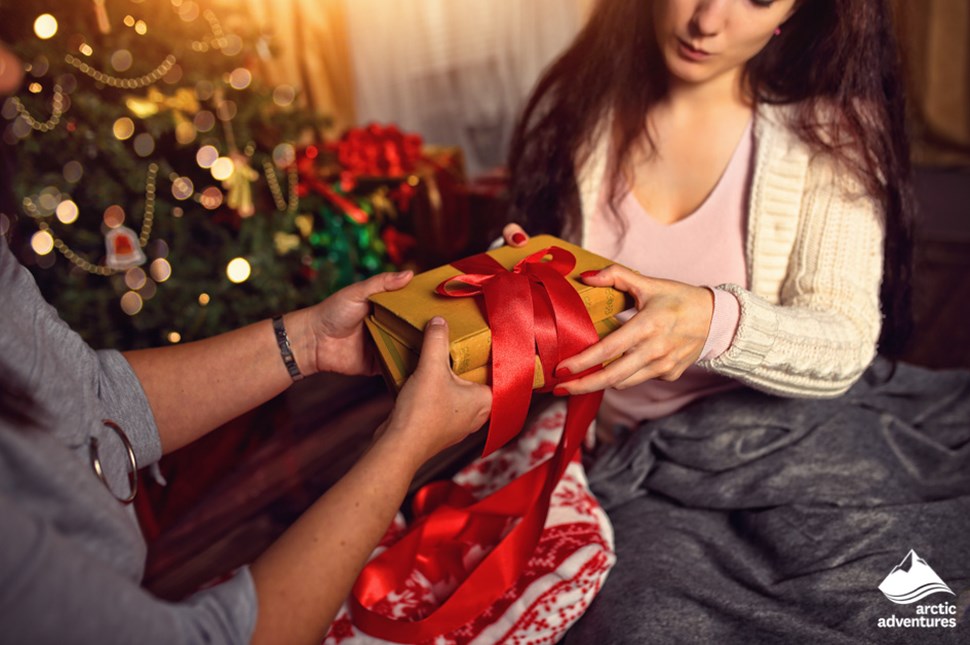
Jólabókaflóð makes the holiday season in Iceland extra special – a time for connecting with loved ones and diving into some great reads.
Iceland's love affair with books is deeply rooted in its culture and history. With a near 100% literacy rate, Icelanders don't just read – they immerse themselves in literature. This nation leads the world in terms of writers, books published, and books read per person. Imagine this: about 1 in 10 Icelanders will publish a book in their lifetime, and ⅓ of the Icelandic population reads books daily! That's impressive and reflects their deep-seated passion for writing and storytelling.
This rich literary culture has historic beginnings. Back in 1786, when the first Icelandic library was established, schools were scarce. Icelanders turned to books for self-education, nurturing a love of learning that has thrived.
Fast forward to the present, and you'll find that reading remains a cornerstone of Icelandic life. Nearly every home in Iceland – 97% of them, to be exact – houses at least one book. The excitement around Jólabókaflóð, the Christmas Book Flood, is noticeable, especially for children eagerly anticipating book presents from their parents. But the magic happens on Christmas Eve when families gather to unwrap and dive into new books together.
In 2021 alone, Iceland published an astounding 834 fiction titles. For a country with a population of just over 360,000, these numbers are remarkable, underscoring the significance of literature and storytelling in Icelandic society.
Recent trends in reading habits provide further insights. A survey by the Icelandic Literature Center revealed an increase in average reading – 2.3 books per person per month, up from 2. This uptick is particularly significant among women and families with children. Young Icelanders are increasingly exploring literature in languages other than Icelandic, and audiobooks have become popular.
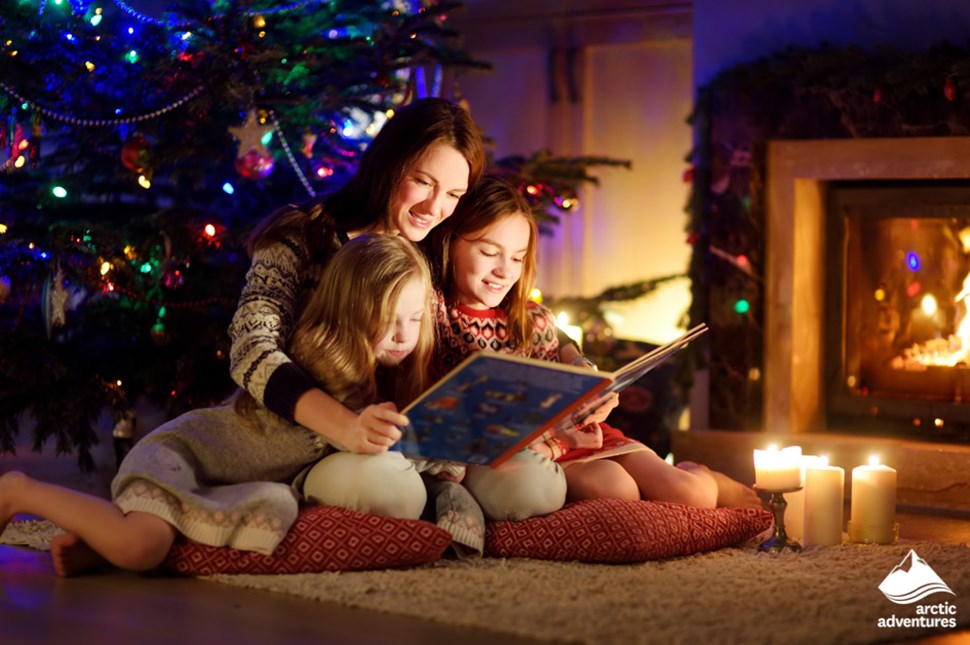
The excitement around Jólabókaflóð, the Christmas Book Flood, is noticeable, especially for children eagerly anticipating book presents from their parents.
Today, Jólabókaflóð remains a cherished Icelandic holiday tradition during Christmas in Iceland. It's a time for families to come together, share new books, and bask in the warmth of shared stories. This tradition is about more than just gifting; it's about fostering a love for reading and spending quality time with loved ones. While novels, cookbooks, children's books, and even textbooks are popular choices, any book can be part of this tradition. And a fun twist - books are often wrapped in traditional Icelandic paper, and finding a book with an insect inside is seen as a stroke of good luck.
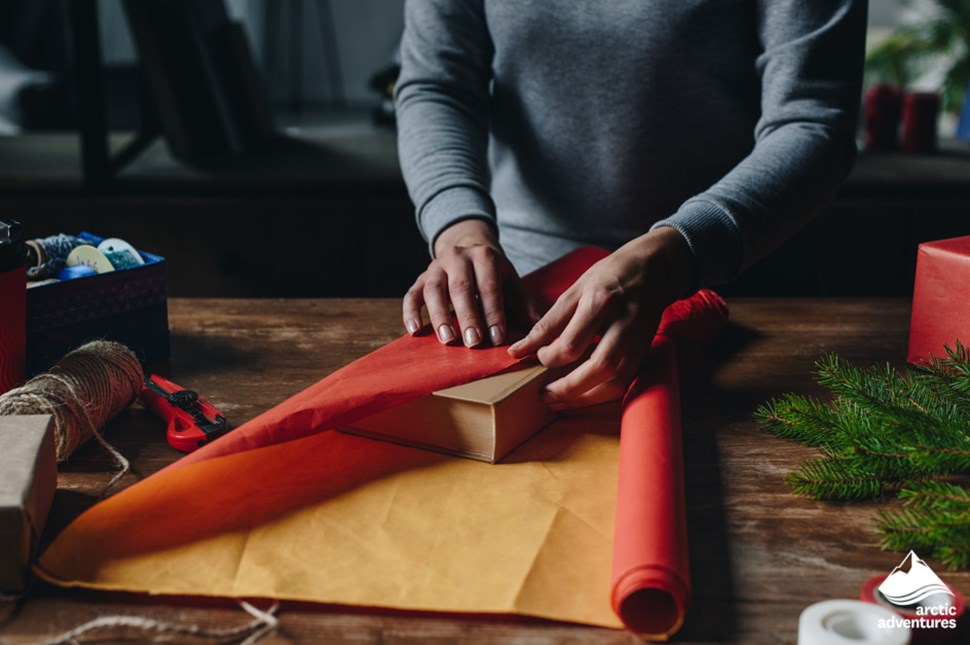
While novels, cookbooks, children's books, and even textbooks are popular choices, any book can be part of this tradition.
Iceland celebrates Christmas with festive decorations, family gatherings, traditional Icelandic Christmas food, Christmas beers, and unique customs like the Icelandic Yule Lads and Jólabókaflóð.
Jolabokaflod meaning is 'Christmas Book Flood,' referring to the tradition of exchanging books on Christmas Eve.
It's the tradition of giving books as gifts on Christmas Eve and spending the evening reading.
It began during WWII due to paper not being rationed, and now it's a beloved tradition where books are the main Christmas gift.
Yes, exchanging books is a vital part of the Icelandic Christmas Eve traditions.
Books are the most common gift, often accompanied by chocolate.
It's another term for Jólabókaflóð, where books are given and read on Christmas Eve.
It's Icelandic, 'Jóla' meaning Christmas and 'bókaflóð' meaning book flood.
It's tied to the folklore of the 13 Icelandic Yule Lads, each visiting children on the 13 nights leading up to Christmas. Learn more about it in our Icelandic Christmas guide.
Best Seller